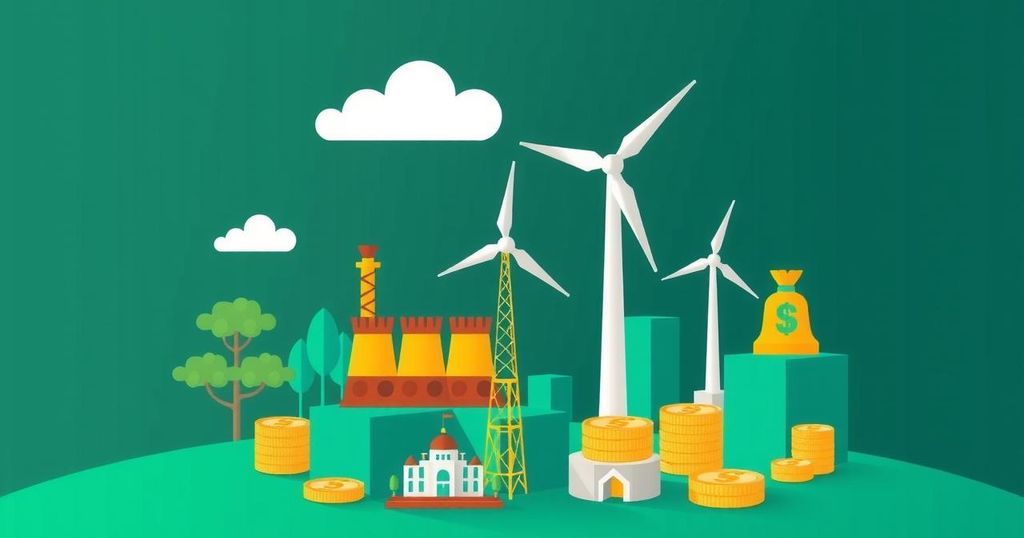Ghana’s Energy Sector Debt Exceeds GH¢80 Billion, Urgent Reforms Necessary

Ghana’s Minister for Energy, John Abdulai Jinapor, has reported that the country’s energy sector debts have soared to GH¢80 billion, mainly driven by the Electricity Company of Ghana’s liabilities. He emphasizes the urgent need for reforms and cooperation from Civil Society Organisations to remedy the situation and prevent a financial crisis. The IMF has similarly recognized the sector as a significant financial risk.
John Abdulai Jinapor, Ghana’s Minister for Energy and Green Transition, has raised alarm regarding the escalating debt within the energy sector, which has reached GH¢80 billion. During a meeting with Civil Society Organisations (CSOs) on March 18, 2025, he indicated that the Electricity Company of Ghana (ECG) comprises over GH¢60 billion of this total, describing the situation as unsustainable and demanding immediate interventions to avert a potential financial crisis.
Mr. Jinapor emphasized the pressing need for drastic actions to manage the burgeoning debts, warning, “The rate at which debts are piling up in the energy sector makes it imperative to take drastic measures. If we do not act now, we risk a major crisis.” He identified financing as a critical challenge and appealed to CSOs for innovative proposals to help reform the sector’s financial structures.
These concerns resonate with recent warnings from Finance Minister Dr. Cassiel Ato Forson, who, speaking at a national economic dialogue on March 3, 2025, highlighted the possibility of Ghana’s energy sector debt rising to $9 billion (GH¢126 billion) by 2027 if no substantial measures are implemented. Dr. Forson underscored the necessity for structural reforms to mitigate further deterioration of the sector’s fiscal health.
The International Monetary Fund (IMF) flagged Ghana’s energy sector as a significant financial risk, noting that legacy debts amounted to $2.1 billion (GH¢29.4 billion), which represents 2.8% of the nation’s Gross Domestic Product (GDP) as of December 2023. In light of these issues, Mr. Jinapor assured CSOs of the government’s commitment to achieving sustainable solutions for stabilizing the energy sector and reinforced the importance of transparency and inclusive stakeholder engagement in addressing the country’s energy-related challenges.
The escalating debt in Ghana’s energy sector, currently at GH¢80 billion, necessitates urgent reforms to avert financial disaster. With the Electricity Company of Ghana accounting for a significant portion, both government officials and the IMF have flagged this issue as critical. The Minister has called for collaborative efforts with Civil Society Organisations to find sustainable solutions and emphasizes the need for transparency in tackling this challenge.
Original Source: www.gbcghanaonline.com








